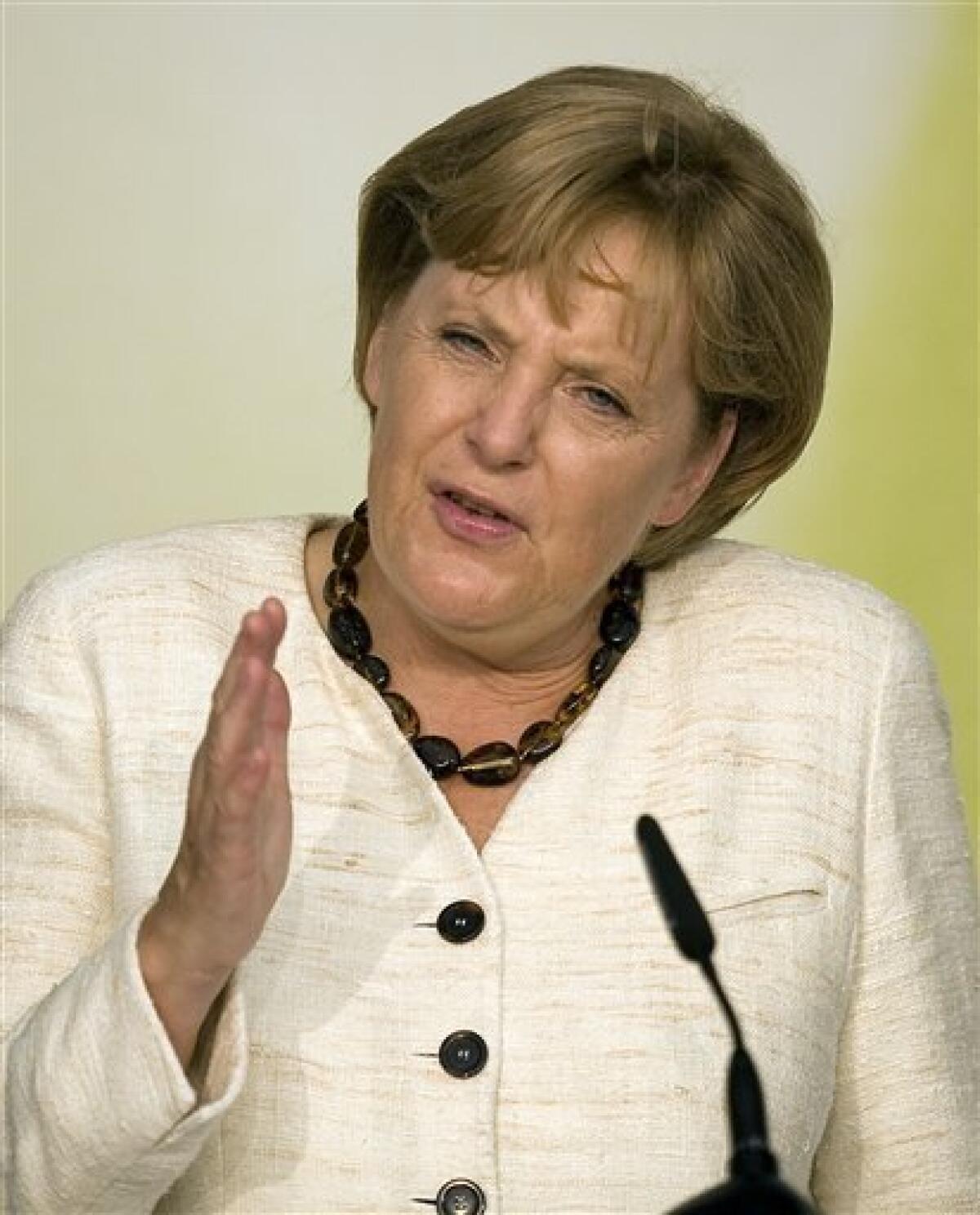Playing it safe: Merkel conducts serene campaign

Angela Merkel nearly campaigned herself to a shock election defeat in 2005. This year, she is running a low-key, almost genteel campaign and it’s paying off – she’s leading the polls as Germany prepares to vote Sept. 27.
The conservative chancellor, just declared the world’s most powerful woman for the fourth year running by Forbes magazine, enjoys a huge advantage in popularity over center-left challenger Frank-Walter Steinmeier.
Polls show a double-digit advantage for Merkel’s Christian Democrats over Steinmeier’s Social Democrats and suggest she has a good chance of ditching the pair’s uneasy “grand coalition” for a new center-right government.
So how has Merkel got herself in this position? In part by appearing to stay above the fray – as she has in much of her four years as German leader.
Germany’s daily Sueddeutsche Zeitung this week described her as the “Teflon chancellor.”
“Angela Merkel so far has succeeded in making herself unassailable on every issue,” it said in an editorial. “Whether the economic crisis, environment policy or education – she always says a little something, otherwise stays vague and suggests to people that others’ ideas don’t really add up to anything new.”
Earlier this month, Steinmeier – Merkel’s foreign minister – accused the conservatives of “trying to lull the public to sleep” and prevent the election campaign from getting going.
The challenger tried to attract the limelight by presenting a 19-member campaign team and pledging to create 4 million jobs by 2020. But the promise was widely criticized, and Steinmeier found himself instead facing questions about the Social Democratic health minister’s decision to take her official car on a vacation in Spain, where it was stolen.
There has been no such flurry of activity from Merkel’s party, which in June presented a platform offering moderate tax relief – though it didn’t specify when.
Attacks have largely bounced off Merkel, who has smothered Social Democratic barbs by simply not responding, or by agreeing with the main thrust of her rivals’ proposals while questioning the details.
She said of Steinmeier’s job pledge that every major party wants “work for everyone,” but suggested it was unrealistic to promise specific numbers.
In a weekend interview, she rejected an invitation to comment on her rival’s campaign missteps even as she suggested his party was an unreliable partner.
“I am not here to name the mistakes of my rival and vice chancellor,” she told ZDF television. But Steinmeier’s Social Democrats, or SPD, “always played a hybrid role – half in the government, half criticizing it,” she added.
The no-risk approach contrasts with the last election in 2005 when then-opposition leader Merkel, fortified by a huge poll lead months before the vote, launched into a campaign that centered on advocating deeper economic reform.
She put a politically inexperienced economic adviser on her campaign team, and was hurt by his off-message advocacy of a flat-rate income tax – something the SPD attacked relentlessly.
On election night, her party finished a single percentage point ahead of the Social Democrats, with whom she ended up having to share power.
In government, Merkel tacked to the center, bringing a pragmatic, calm approach to the forced marriage of Germany’s biggest parties and building up an image as a respected international leader. That has helped her to consistently high popularity ratings.
ZDF public television’s editor-in-chief, Nikolaus Brender, said in an on-air commentary this week that politicians were failing to offer Germans a clear picture of how they plan to shape the country’s future.
“Above all, the chancellor is shirking any argument, and in doing so depriving citizens of the electoral right to alternatives,” he said.
However, with the rival candidates still governing together and the economy just emerging from a deep recession, a senior Merkel aide said last week that a calm campaign is just what voters want.
“This election campaign is different from all others,” Volker Kauder, the conservatives’ leader in parliament, told the Bild daily.
“Germans don’t want a scrap, but a calm and committed discussion about the best way out of the crisis,” he said. “This discussion is happening, and so the SPD will fail with its accusations against the chancellor.”
A German newspaper interviewer recently noted that, whereas predecessor Gerhard Schroeder often sounded hoarse during his campaigns, Merkel still has her voice.
“I try not to shout during my campaign appearances,” the chancellor replied. “Shouting at people doesn’t sound good anyway.”